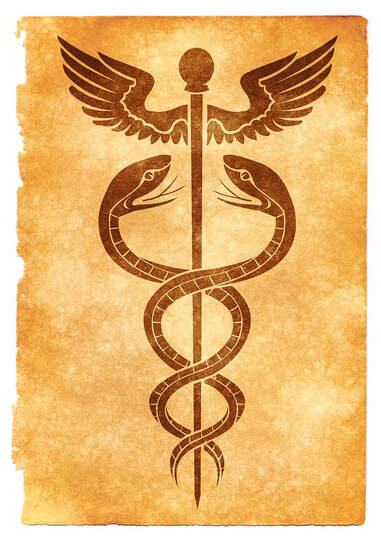|
by the Reverend Michaelene Miller Good Morning, St. John’s! I am the Rev. Michaelene Miller and I serve as the Director of the Deaconess Anne House, a ministry of the Diocese of Missouri for young adults interested in cultivating lifestyles of intentionality, service, and social justice. When I was a corps member in the DAH program many years ago, I worshiped regularly at St. John’s and it was the first church I preached in so I thank you for the invitation to worship and preach with you again today. Today’s gospel passage from the third chapter of John takes me back. Kind of like time travel, I am transported back in my memory to the last time that I worshiped with a congregation in person, inside the sanctuary, just over a full year ago. Today’s gospel passage is the latter half of the conversation between Jesus and a Pharisee named Nicodemus, a leader and prominent religious teacher in the Jewish community. It is a conversation that I dove into as I preached that last time I worshiped with folks in person, inside on the second Sunday of Lent last year, just a few weeks before in-person worship was suspended because of the unfolding pandemic of COVID-19, a suspension and a pandemic that have now lasted well beyond what any of us could have ever predicted. I do invite you to travel back with me as we re-contextualize this passage about faith, discipleship, and God’s love because within it is a verse that we often see out of context. Perhaps the most famous verse of scripture, John 3:16 - "For God so loved the world that he gave his only Son, so that everyone who believes in him may not perish but may have eternal life" - is a verse that verges on the edge of idolatry in the ways that it has been lifted up and wielded over others. We see it too often posted alone and in isolation without its surrounding context in ways that can be damaging and perpetuate the trauma of Christians wielding judgement and condemnation against other humans falsely in the name of Jesus the Christ. We have to take a closer look. In the opening verses of chapter 3 we walk with Nicodemus as he comes to Jesus by night to talk. Vulnerable, perhaps willing, and curious to know Jesus, Nicodemus seeks him out to make his confession. In the Gospel of John, the act of seeking Jesus is the first step of discipleship. Yet, while Nicodemus does come to Jesus, he seeks him under the cloak of darkness, an image used by the evangelist to indicate a separation from the presence and knowledge of God. It is a high-risk conversation for Nicodemus, a man of great status, power, education, and influence in his community. In this conversation, he approaches the border of abandoning his privileged position in society and sense of certitude to align with and follow this poor, Palestinian teacher. Jesus is willing to meet Nicodemus and, with love, Jesus both welcomes him as he also tells the hard truth, confirming that this journey of discipleship is one of great risk. Jesus challenges Nicodemus’s faith to move beyond his surface meanings and desire for clear, logical answers. Belief in the Gospel of John is a journey beyond intellectual assent, to a deeper experience of mutual relationship with God that involves choosing God back and living in an orientation of transformation. In a faith like Nicodemus’, which is so far based upon signs and intellectual opinions alone, one may know about God, but one misses the greater possibility of knowing God; of being in eternal life and unending relationship with God; of experiencing and taking on the gaze of God; of seeing and participating in God’s vision for the world. Jesus attempts to help Nicodemus comprehend the radical, new life of faith that God was revealing through him in the world and offers Nicodemus other images in an attempt to invite him beyond his misunderstanding. After a few mystifying exchanges about new life in water and the Spirit, we enter the conversation at our gospel passage today. At this point in the conversation, Jesus references an ancient story that Nicodemus and Jesus’ early followers would have been really familiar with. It is the story from the book of Numbers that we have as our Old Testament lesson for today. Jesus continues in teaching, challenging Nicodemus’ faith and further illuminating the path to salvation and way of belief, or full life in relationship with God, by saying, “Just as Moses lifted up the serpent in the wilderness, so must the Son of Man be lifted up, that whoever believes in him may have eternal life.” For Nicodemus and the early church community, this reference would have easily recalled the lessons that the Hebrew people learned on their long, wandering wilderness journey to the promised land. In the reading from Numbers, we meet the Hebrews, complaining once again on their long, difficult desert journey to liberation. As before, when they have tired from the transformation, the people lose trust in God and Moses and become nostalgic for the familiar, what they used to know, even a life of enslavement in Egypt. Here they speak out, “Why have you brought us up out of Egypt to die in the wilderness?” Then, in a very human response, which has been echoed throughout time whenever someone stands in front a full pantry of unprepared ingredients, they continue, “For there is no food and no water, and we detest this miserable food.”
Unlike the synoptic gospels of Matthew, Mark, and Luke, the evangelist of John’s gospel doesn’t provide the three “passion predictions” of Jesus foreshadowing the suffering that he will soon endure upon the cross. What we do get in the Gospel of John are three of these prediction statements of the Son of Man being “lifted up.” In the gospel of John, these statements refer to the “lifting up” of Jesus in the crucifixion, resurrection, and ascension. So we find out that just like the snake bitten Hebrew people, who were called by God to look at their woundedness - the very thing that poisoned and killed them - in order to be healed and have life, so are we called as Christians to gaze at Jesus upon the cross as it reveals to us the very depths of what continues to plague us: our refusal to love, our addiction to judgement and violence, our resistance to change, and our fear of the Other… It is in turning our attention and re-orienting our lives towards the cross that we come to fully witness how God took in all the trauma of that moment and, instead of perpetuating it in retribution and condemnation back into the world, God released love back into the world. Jesus was lifted up in the Resurrection, taking away the sting and poisonous bite of death, and returned to the Father in the Ascension so that we might have a direct path and access to personal relationship with God. God interrupted our human cycle of complaining and perpetuating hurt and pain in the world. God modeled for us how to transform and heal trauma into love, life, and relationship. So it is that as we walk through our own difficult, desert journey in the wilderness of this Lenten pandemic towards the cross of Holy Week, we must ask ourselves how are we called to heal today when we gaze at Jesus upon the cross? What woundedness or suffering do you see when you turn your eyes to the cross? It can be paralyzing to sit with all the suffering and woundedness in the world. There is so much, especially today. We have collectively experienced the trauma of so much death and loss from this pandemic of Covid-19. The pandemic of racism and justice denied rages on as the families of Ahmaud Arbery, Breonna Taylor, and George Floyd continue to cry out. And if we listen close enough we can also hear all of creation groaning as the pandemic of climate change threatens any certainty of a future. Maybe in this time of standing apart from one another, we can work towards the healing of our own individual trauma so that we don’t then continue to perpetuate our hurt when we are able to return to the rhythms of life together. It is only when we actually take the time to look at our suffering, to sit with it, to feel it, to expose it to the light by naming it, that we can then see our need. For example, in this time of isolation, have you come to clearly see our human need for connection and relationship? Have you come to deeply know the truth that we are created by God to be in relationship with God, each other, and the earth? Our path to healing is through God’s unconditional and unlimited love that continues to always reach out and extend an invitation for us to return and re-orient our lives back into relationship with God, each other, and the earth. The choice to accept this invitation can feel like a moment of crisis, at times too overwhelming or too uncomfortable that we begin to yearn for what used to be, but we find life and healing when we make the choice to choose God back, answering God’s invitation to believe – not just in our head but also with our lives. So, during our remaining days of Lent and our remaining time of standing apart to care for each other, how can we let these fuller truths of the cross change us? How can the cross invite us further into our own personal healing so that we can then work on healing the world? How will we choose God back? Amen+ The Reverend Michaelene Miller serves the Diocese of Missouri as the Director of the Deaconess Anne House.
0 Comments
Leave a Reply. |
Editorial contactVarious members of the St. John's congregation contribute to this blog. For editorial suggestions, contact Jeff McIntire-Strasburg at [email protected] Archives
May 2024
CategoriesAll Bishop Deon Johnson Book Group Congregation Members Deacons Diocese Of Missouri Episcopal Church Features General Information Parish Events Podcast Presiding-bishop-michael-curry Sermons Terms-of-transition Vestry |

 RSS Feed
RSS Feed

